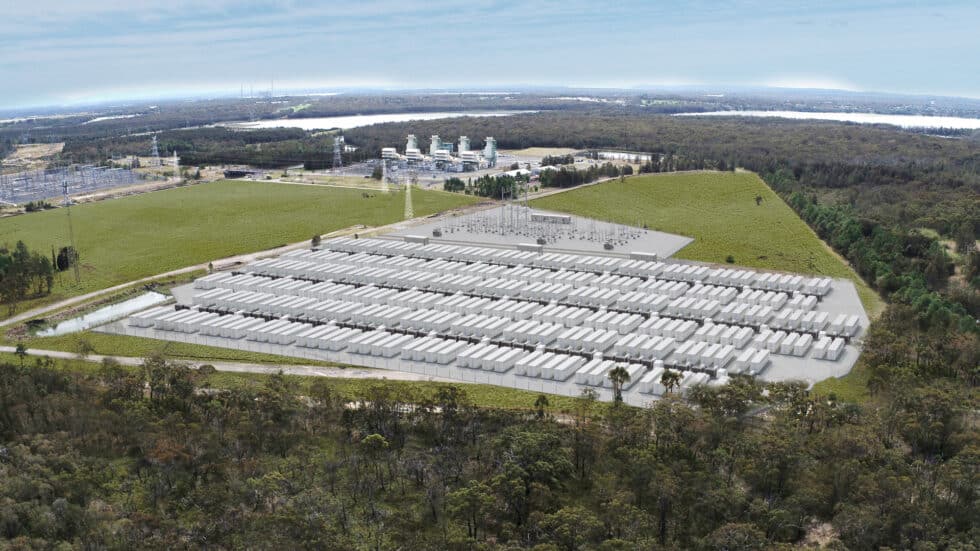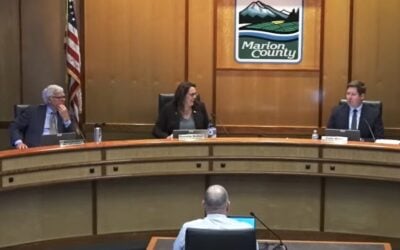
Utility-scale BESS market action in Australia, with developers Akaysha Energy, Firm Power and ACE Power receiving key project approvals.
Akaysha Energy, rapidly becoming one of the country’s best-known and most prolific new developers, has received planning approvals for two of its pipeline of around 10 projects in development: the 200MW/800MWh Elaine battery energy storage system (BESS) project in Victoria, and the 100MW/200MWh Palmerston BESS in the island state of Tasmania.
Enjoy 12 months of exclusive analysis
- Regular insight and analysis of the industry’s biggest developments
- In-depth interviews with the industry’s leading figures
- Annual digital subscription to the PV Tech Power journal
- Discounts on Solar Media’s portfolio of events, in-person and virtual
Cogency, a climate solutions-focused consultancy hired by Akaysha Energy, announced last week via business networking site LinkedIn that the approvals had gone through and “permits granted with zero objections”. This came, Cogency said, despite a market atmosphere in which “governments across Australia are being criticised for delays in approving renewable energy projects”.
Planning approval for Elaine in western Victoria was received within six months, and for Palmerston within four months, Cogency said.
“These approvals demonstrate the benefits of robust design, detailed technical work and comprehensive stakeholder engagement,” the company added.
Elaine BESS is sited within Victoria’s designated South West Renewable Energy Zone (South West REZ), one of six mixed clean energy technology, multi-gigawatt centralised renewable energy generation and transmission centres the state government is fostering the development of.
Set to host large-scale solar PV and wind facilities, the South West REZ will also feature a 300MW/650MWh BESS project from major Australian utility generator-retailer Origin Energy, supplied by Fluence, as reported by Energy-Storage.news earlier this week. More projects of its type can be expected to spring up in the REZ, as well as in the dozens of similar REZ facilities being planned or built across the Australian states.
The Palmerston project in Tasmania’s approval by the Northern Midlands Council came shortly after a 288MW solar PV project was approved in mid-December by the council, in development through local company TasRex.
Akaysha Energy was acquired by an arm of BlackRock, the world’s largest asset manager, in 2022. In December, it took a Final Investment Decision (FID) on a 205MW/410MWh project in Queensland, and received key Generator Performance Standard (GPS) certification for another 150MW/300MWh facility in the state.
In addition to its projects in Australia, which also include the under-construction Waratah Super Battery in New South Wales (NSW), the developer recently formed a partnership with Japanese conglomerate Itochu Corporation to take on the nascent BESS market in that country.
Meanwhile, according to various news reports, the 477-tonne ‘superload’ carrying transformers to the 850MW/1,600MWh Waratah Super Battery was photographed on its way to Akaysha Energy’s project site this week.
‘Navigating an evolving landscape’
Firm Power, an Australian developer which has a claimed pipeline of 3.6GWh in development worth more than AU$2 billion (US$1.31 billion) capital investment value, said a week ago that it had received a trio of approvals.
Much like Cogency’s announcement, Firm Power’s claimed the approvals were noteworthy given some of the challenging circumstances for pushing battery storage development through approvals channels.
Firm Power got planning approvals for two BESS sites in New South Wales (NSW), which will form part of Hunter Dispatchable Energy System (HDES). This will be a so-called “distributed stand-alone battery system,” aggregating the capabilities and capacities of a number of large-scale assets.
The approved projects are Beresfield Battery Storage, planned to be 170MW output, and Awaba, which is smaller at 50MW. Expected capacities or durations are not listed on Firm Power’s pages about the projects on its website.
Beresfield went from “exhibition to determination” in just six months, the company said, while the two projects passed through the NSW process for ‘state significant’ projects which Firm Power described as “challenging”. Likewise, 2023 was described by the company as a “challenging year for renewable energy planning approvals” in New South Wales.
The Hunter region was described by New South Wales premier Dominic Perrottet in 2022 as being at the heart of the state government’s electricity strategy roadmap, with the prior approval of a 500MW BESS project, and plans for large-scale green hydrogen hubs in the area.
Firm Power got approval for another project in the state just before the end of 2023, getting development approval for its 200MW Abermain Battery project in Queensland.
Finally, fellow developer ACE Power said a few days ago that it has received approval for its applications to connect two projects totalling 303MW to the grid and National Electricity Market (NEM).
The Australian Energy Market Operator (AEMO) granted the company permission to connect its 103MW Kerang project in Victoria and 200MW Yabulu project in Queensland to the transmission network directly through existing substations.
ACE Power received AEMO’s key 5.3.4A&B approval letters in “close succession,” marking the company’s first. The projects will operate in grid-forming mode, providing inertia to help balance the system and keep stable. ACE’s senior development manager and BESS lead claimed them to be among the earliest of their type to get approvals in Australia.
“This outcome is the culmination of over 12 months work, and considerable engineering input from our respective consultants as we navigated an evolving landscape in respect of how grid-forming inverter technology is assessed by AEMO and the network service providers (NSPs),” ACE Power’s Shane Humphreys said.
The AEMO approvals “significantly” de-risk the two projects, Humphreys said, with the developer now shifting its focus towards getting the projects into construction by the second quarter of this year: “…and ultimately bringing forth the network and consumer benefits that come with the deployment of advanced BESS inverter capabilities”.
Energy-Storage.news’ publisher Solar Media will host the 1st Energy Storage Summit Australia, on 21-22 May 2024 in Sydney, NSW. Featuring a packed programme of panels, presentations and fireside chats from industry leaders focusing on accelerating the market for energy storage across the country. For more information, go to the website.






